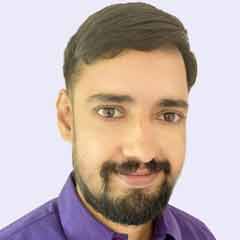Thrilled, but MS Swaminathan deserved Bharat Ratna when he was alive, says long-time associate

Mail This Article
Alappuzha: The conferring of Bharat Ratna on late M S Swaminathan, has come a “little late” and the great scientist, who heralded the green revolution to the country, should have been honoured while he was alive, opinioned his longtime associate Dr K G Padma Kumar.
However, Dr Padma Kumar, who had worked closely with Dr Swaminathan in framing the Kuttanad package, said he was thrilled anyway, with the late scientist finally being bestowed with the country’s highest civilian award.
“India indeed got independence in 1947, but the real independence, when it achieved food security, was in 1970. And this man’s vision for a hunger-free world is behind it. It was his dream to end global hunger, and that explains why he set up the International Rice Research Institute in 10 countries, including Pakistan,” the Director of the International Research and Training Centre for Below Sea Level Farming said.
Mankombu Sambasivan (M S) Swaminathan, a member of the renowned Mankombu family based here, had this single-dedicated dream from his childhood, after witnessing the Bengal famine of 1943, which claimed about three million lives.
“The boy, born in Kumbakonam in Tamil Nadu, knew from the beginning that without sufficient food, humanity cannot survive. That explains why he chose Agriculture and Genetics post his school education and did research studies in it. He attempted the IAS exam once due to relentless pressure from his relatives and got selected in the IPS category. But then he made up his mind and went on to do research in Agriculture. He even threw away his teaching job at the Wisconsin University, US, in 1954 and began to work in wheat and rice genetics at the Indian Agricultural Research Institute,” Dr Padma Kumar recollected.

Swaminathan successfully generated high-yielding rice varieties initially and later changed his attention to the wheat breeding programme that helped India become a food-secure country by 1970.
“In the 1960s, India was facing the threat of insufficient food. Even the then Prime Minister Jawaharlal Nehru said everything else can wait but not agriculture. A BBC team arrived in India in 1967 to make a documentary on ‘Indian Poverty’. The team interviewed Swaminathan and asked him how many people would die without sufficient food in the next ten years. A shocked Swaminathan then took them to his laboratory and showed the high-yield rice and wheat varieties that his team developed and said, ‘This is going to change India’s destiny in the next two years’. To the crew’s doubtful eyes, the scientist replied, ‘I’m fully confident’,” Dr Padma Kumar said.

“The transformation became a reality. Norman Borlaug, the Nobel prize winner in 1970, in fact said Swaminathan deserved the award in his speech,” he pointed out.
Dr Swaminathan, who transformed the post-Independent India’s image from that of an agricultural basket case to a breadbasket, had his roots in Kuttanad -Kerala’s granary. One of his key contributions, the high-yielding rice variety called IR8, was instrumental in revolutionizing the state’s paddy farming sector in Kerala.
In 2007, a committee he led submitted a report on the 'measures to mitigate agrarian distress in Alappuzha and Kuttanad wetland ecosystem', which prompted the government to announce a special package to restore Kuttanad. The study, meanwhile, also prompted the Food and Agriculture Organization to declare the Kuttanad Wetland Agriculture System as a Global Heritage Agriculture System. The legendary agricultural scientist passed away at the age of 98 on September 28, 2023.


